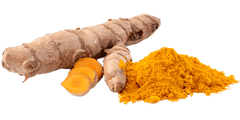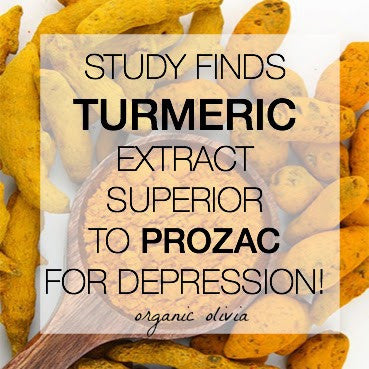
5 Memory Boosting Benefits Of Turmeric
Many people in today's world are starting to think about their memory, but don't know where to start when it comes to taking care of it. There's not much information readily available in the same way that many other illnesses have. We see pamphlets everywhere about how to quit smoking, how to take care of your heart, how to take care of your skin and eyesight, but it quickly becomes evident that not many people think about the health of their memory and their brain.
A healthy memory helps reduce the risk of Alzheimer's disease, Dementia, and other diseases that are often characterized by memory loss. These illnesses can affect your daily life, and in the advanced stages, can even cause you to forget things you would never dream of forgetting such as your children, your grandchildren, or maybe even your spouse. You can even forget how to walk and eat on your own. It is a scary thought, and these illnesses are often caused by a lifetime of high stress, poor diet, lack of exercise and consistent multitasking. Genetics also play a role in how prone a person is to the disease, but that doesn't stop you from taking action today to create a healthier life for yourself, and help reduce your risk of these illnesses.
Reducing Your Risk of Alzheimer's and Dementia
All of this talk about illnesses that cause memory loss leaves just one question: “what can I do to reduce my risk?”
Of course, it's always a good idea to practice healthy exercising habits, social habits and work environment habits, but what about diet? There are so many processed ingredients in our normal, day-to-day diet today that any number of artificial sweeteners or preservatives are likely to make us more prone to various diseases and illnesses. It makes sense to rid your body of harsh chemicals and feed it whole, natural foods.
Now that you've gotten rid of the junk, however, isn't there anything you can do to help boost your brain's health?
There's a multitude of brain-healthy foods and ingredients that you can cook with, from bananas to almonds, rosemary to salmon, but one ingredient in particular has begun to catch the western culture by storm recently: Turmeric.
What Is Turmeric Curcumin?
Turmeric is a small, rhizomous root that originated in the southern part of Asia. You may have already tasted it if you enjoy Indian or Thai food. It is commonly used as a culinary ingredient throughout various native cultures and cuisines in Bangladesh, India, China,  and many other countries. Turmeric is the ingredient that causes curry's famous yellowish color and deliciously unique spice.
and many other countries. Turmeric is the ingredient that causes curry's famous yellowish color and deliciously unique spice.
If you've found yourself wondering how a culinary root can boost your memory decades from now, the answer is hidden within the root itself. The main reason that Turmeric was traded so frequently through the East was less for its culinary taste and more for its purposed medicinal benefits. Each culture that used it claimed it had another amazing use for an ailment or an illness. These claims ranged from cuts, bruises, swelling, all the way to memory loss, colds, and tumors.
Of course, this got the attention of modern day scientists as well. Many different studies have been done to see whether or not Turmeric truly is worth all of the claims it received credit for, and they've found nothing but positive results.
Memory Boosting Benefits Of Turmeric Curcumin
The main compound found within the root is called Curcumin. This compound has been found to relieve joint pain, common colds, swelling, fevers, reduce depression, and much more. With frequent (daily) use, Turmeric can be used to help improve not only your quality of life, but also the quality of your memory later on in life. This root powder is able to be easily added to your everyday meals, or you can make a batch of Turmeric Milk to drink in the evenings.
But how does Turmeric benefit your memory and brain health? Below are five main reasons why taking Turmeric will help save your memory.
1. Turmeric Protects Your Brain Against Aging
One of the main benefits of Turmeric – or should we say Curcumin – is its incredible  antioxidant benefits. These antioxidants are wonderful for your brain health, crossing the blood-brain barrier and protecting your brain cells from unwanted free radical molecule damages. It is important to protect your body and your brain both from free radical molecules as these have been shown to be the main culprit behind aging, cancer and many other ailments.
antioxidant benefits. These antioxidants are wonderful for your brain health, crossing the blood-brain barrier and protecting your brain cells from unwanted free radical molecule damages. It is important to protect your body and your brain both from free radical molecules as these have been shown to be the main culprit behind aging, cancer and many other ailments.
2. Turmeric Increases Blood Flow and Memory
Scientists have performed a multitude of studies and one study in particular has found amazing results in Turmeric's ability to improve blood flow. This was in comparison to healthy amounts of physical exercise, which means that you can easily get the benefits of both exercising and turmeric for a double-whammy of benefits.
Turmeric has also recently been concluded in a study to improve the cognitive ability and attention span of healthy seniors. Even more amazing than that, the results were apparent within an hour.
3. Turmeric Helps Relieve Stress and Anxiety
Many of the studies that have been conducted when it comes to stress and anxiety are often with other herbal supplements, such as Fenugreek, Saffron, and St. John's Wort.
In one randomized study, a sample group of patients were selected for higher levels of occupational stress. These patients were asked to take Curcumin, the main compound found in Turmeric, along with the herb Fenugreek. This study wound up concluding that  not only were the patient's perceived stress and depression levels were significantly reduced, but almost all patients recorded having a higher quality of life and reduced fatigue.
not only were the patient's perceived stress and depression levels were significantly reduced, but almost all patients recorded having a higher quality of life and reduced fatigue.
Curcumin, taken concurrently with Saffron, which has been shown to be another potential herbal antidepressant, has shown positive results in patients who have been diagnosed with major depressive disorder. This could be revolutionizing for people who feel stuck in a rut and react poorly to many popular prescription drugs, or want to avoid them all-together.
4. Turmeric Potentially Breaks Up Brain Plaque
In India, the elderly villagers there have the lowest rate of Alzheimer's disease reported on a global scale. When further research was performed, it was discovered that Turmeric was a very frequent ingredient in their diet, and there may be a correlation between the two.
Current studies, although preliminary, show Curcumin's potential ability to break up the plaque that is found clogging the brain in Alzheimer's patients, and this could be an incredible discovery for Alzheimer's and Dementia research. Many different sources suggest that more studies are needed to confirm that Curcumin is responsible for the plaque breakup.
5. Turmeric Helps Prevent Fatigue
Fatigue may not seem like it is related to Alzheimer's disease or Dementia, but it still affects your brain. With too much chronic fatigue, you can start feeling “brain fog”, or feel like you are constantly dragging through the day, unable to get enough caffeine to fuel your body.
Fortunately, Curcumin has been shown to significantly reduce feelings of fatigue and effects of oxidative stress. This includes individuals who suffer from diagnosed chronic fatigue syndrome.
